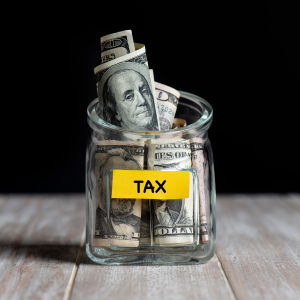
Understanding Capital Gains and Their Impact on Real Estate Sales
Homeowners in Boston, Massachusetts, must comprehend capital gains when selling their property. You calculate capital gains, the profit from selling a property, by subtracting the original purchase price and any improvements from the selling price.
Gains from real estate sales can have a significant financial impact due to tax consequences. For Boston homeowners, assessing whether their home qualifies for certain federal tax breaks is critical.
The Internal Revenue Service (IRS) provides a primary residence deduction, which allows single filers to exclude up to $250,000 in capital gains and married couples filing jointly to exclude up to $500,000 if they have resided in and owned the property for at least two of the previous five years. You should evaluate Massachusetts’ state-level taxes on capital gains alongside federal requirements.
Homeowners may accurately determine their taxable income and make plans in accordance with it if they understand how these restrictions specifically apply to sales in Boston. To successfully navigate these complexities, tax experts frequently advise speaking with a professional who understands the nuances of the federal and Massachusetts state tax codes.
Thinking about selling your Boston home? As cash home buyers in Boston and other cities in Massachusetts, we make the process fast and hassle-free, helping you avoid unnecessary costs. Here’s how CNC Offers can help you keep more profit from your sales.
Tax Obligations for Home Sellers in Boston, MA
When selling a house in Boston, MA, homeowners must be aware of several tax obligations that could impact their financial outcomes. The most significant tax consideration is the capital gains tax, which applies to the profit made from the sale of a property. In Massachusetts, homeowners may be eligible for a federal capital gains tax exclusion if they have lived in the home as their primary residence for at least two of the five years preceding the sale.
Additionally, sellers in Boston should consider state taxes; Massachusetts imposes its own state-level capital gains tax on property sales. Another important factor is the real estate transfer tax, often called the excise tax, which is levied by local governments on property transactions and typically amounts to $28 per $500 of the sale price in Massachusetts.
Homeowners should also account for any outstanding property taxes that need to be settled before closing. Understanding these various tax obligations can help sellers navigate the financial complexities associated with selling a home in Boston and ensure compliance with both federal and state regulations.
Strategies to Minimize Capital Gains Tax When Selling Property
Homeowners in Boston, Massachusetts, can avoid capital gains tax using various tactics when selling their houses. One effective strategy is to take advantage of the principal residence exclusion, which allows homeowners to deduct up to $250,000 in capital gains for single filers and $500,000 for married couples filing jointly, provided they have resided in the property for at least two of the last five years.
Investing capital upgrades before selling can enhance the property’s cost basis and lower taxed gains. Homeowners may also try timing their sale deliberately to coincide with income swings to remain in a reduced tax bracket.
Using a 1031 exchange could also defer capital gains taxes by reinvesting proceeds into a similar property. Consulting with a knowledgeable tax advisor or real estate attorney familiar with Massachusetts tax laws can provide personalized guidance and ensure compliance while optimizing tax outcomes when selling real estate in Boston.
Navigating State-specific Tax Laws: a Guide for Massachusetts Home Sellers
Understanding state-specific tax rules is essential for homeowners selling their homes in Boston, Massachusetts. Massachusetts charges a real estate transfer tax on property sales, sometimes known as a stamp duty or excise tax.
The home’s sale price determines the seller’s property increase after the purchase; sellers may need to pay capital gains taxes in addition to the transfer tax; however, they may qualify for exemptions if they used the house as their principal residence.
Sellers need to be aware of any local taxes applicable within specific municipalities in Massachusetts. Consulting with a knowledgeable real estate attorney or tax advisor can help ensure compliance with all relevant state and local taxation requirements while maximizing potential exemptions available under Massachusetts law.
If homeowners in Boston can figure out how to deal with these taxes correctly, the sales process will go more smoothly and improve their finances.
Exemptions and Deductions Available to Reduce Capital Gains Tax Liability
When selling a home in Boston, Massachusetts, homeowners can use different exemptions and deductions to decrease their capital gains tax burden, so they should be aware of them. The homeowner’s exclusion allows individuals to deduct up to $250,000 of profit from their taxable income if they have owned and lived in the property as their primary residence for at least two out of the five years before sale.
For married couples filing jointly, the exclusion amount climbs to $500,000. Furthermore, there are deductions available to help reduce taxable profits.
Homeowners can take off some of their selling expenditures, like advertising charges, legal fees, and real estate agent commissions, from their total earnings. You can also include the cost of improvements that raise the worth of the property to the home’s cost base, which lowers the overall gain.
Understanding these exemptions and deductions is crucial for Boston homeowners aiming to optimize their tax situation when selling their house.
How to Report Real Estate Transactions on Your Federal Tax Return
When homeowners in Boston, MA, sell their homes, they must report their real estate transactions correctly on their federal tax return. To ensure you follow IRS rules, you need to know the tax consequences.

Homeowners must determine if they can take advantage of any exclusions or deductions, including the capital gains tax exclusion available in some situations. You must usually fill out IRS Form 8949 and Schedule D to report the sale. These forms ask for the property’s basis, sale price, and any renovations made while you owned it.
Maintaining thorough records of these transactions and any associated costs, such as selling or closing fees, is essential, as this might affect your taxable gain. Consulting with a tax professional can help clarify complex scenarios like depreciation recapture or calculating adjusted basis correctly.
Homeowners can avoid fines and ensure they fulfill all legal requirements associated with Boston real estate sales by accurately reporting real estate transactions on their federal tax return.
Selling your Boston home doesn’t have to be stressful. You skip the hassles and delays when you sell directly to cash buyers. Contact CNC Offers to make the process simple and quickly walk away with cash in your hands.
Understanding the IRS’s Two-Year Rule for Home Sale Exclusions
People selling their homes in Boston, Massachusetts, should know about the IRS’s two-year rule for home sale exemptions, which could help them pay less in taxes. If you sell your main home, the IRS lets you leave out up to $250,000 of capital gains. If you and your spouse file jointly, you can leave up to $500,000.
To qualify for this exclusion, homeowners must have owned and used the property as their main home for at least two of the five years preceding the sale. These two years do not need to be consecutive; however, they are crucial in determining eligibility for the exclusion.
Boston homeowners who want to get the most money when selling their home must know this guideline. Proper paperwork and adherence to specific regulations can significantly impact the tax due following the transaction.
Knowing the IRS’s requirements guarantees that homeowners in Boston take advantage of all potential tax benefits when selling their homes.
Common Mistakes to Avoid When Filing Taxes After a Home Sale
When selling a house in Boston, MA, homeowners often make several common mistakes when filing taxes after the transaction. One frequent error is neglecting to report the capital gains accurately.

Homeowners should be aware that they must report this on their tax return if their home sale results in a gain exceeding the exclusion limit, which is $250,000 for single filers and $500,000 for married couples filing jointly. Another mistake is failing to keep detailed records of home improvements and expenses that can increase the property’s basis and potentially reduce taxable gains.
Sellers may understate property transfer taxes or neglect to account for prorated property taxes at closing if they have a poor understanding of the state and local tax requirements unique to Massachusetts. Furthermore, failing to get advice from a tax expert knowledgeable about Boston real estate transactions may lead to the loss of credits or deductions that could have decreased one’s overall tax obligation.
Homeowners must comprehend these complications to minimize penalties and maximize their post-sale financial results.
Case Study: Successfully Managing Taxes on High-value Property Sales
In a recent case study of a high-value property sale in Boston, MA, the homeowners successfully navigated the complex landscape of real estate taxes. Selling a home in Boston can trigger various tax obligations, particularly when dealing with high-value properties.
To reduce their liability, these homeowners were proactive and sought advice from knowledgeable real estate tax experts who were conversant with Massachusetts tax regulations. They ensured they grasped the main residence exclusion benefits offered to homeowners who have lived in their houses for at least two of the previous five years before selling, and they carefully estimated prospective capital gains taxes.
By leveraging these exclusions, they significantly reduced their taxable gain. Additionally, they accounted for any state-specific transfer taxes that might apply and ensured all necessary documentation was meticulously prepared to avoid any penalties or unexpected costs.
Using this calculated strategy, they could maximize their sale proceeds while still adhering to all applicable local and federal tax laws. Their story serves as a reminder of the need for careful preparation and knowledgeable advice when handling taxes during Boston real estate transactions.
What Taxes Do You Pay When You Sell a House in Massachusetts?
When selling a house in Massachusetts, homeowners must pay certain taxes to ensure a smooth and compliant transaction. The significant tax is the Massachusetts state transfer tax, sometimes called the deed excise tax. This tax is calculated depending on the property’s sale price and typically amounts to $.56 per $1,000 of the sale price in most counties, including Suffolk County, which is home to Boston. Local transfer taxes may also apply in certain Massachusetts municipalities.
Sellers should also be aware of potential capital gains taxes on any profits earned from the sale of their home. If the property has appreciated sufficiently after its purchase, federal capital gains taxes may apply; however, primary residences are free up to specific limits: $250,000 for single filers and $500,000 for married couples filing jointly. Boston homeowners must contact a tax expert or real estate attorney to understand how these taxes apply to their unique situation and to investigate any available deductions or exclusions when selling their Massachusetts home.
How Do I Avoid Capital Gains Tax on Real Estate in Massachusetts?
There are a few ways that homeowners in Boston, Massachusetts, can avoid or lower their capital gains tax when they sell their homes. One way to do this is to use the primary residence exclusion. This lets people exclude up to $250,000 ($500,000 for married couples filing jointly) of capital gains if they have lived in the property as their primary residence for at least two of the five years before the sale.
Homeowners selling an investment property and wanting to use the money to buy another similar property may also want to think about a 1031 exchange. This lets them put off paying capital gains taxes until the new property is sold. It can also be helpful to keep careful records of any home upgrades because these costs can be added to the property’s basis, which lowers the amount of taxable gains.
To effectively navigate these options and ensure compliance with state and federal regulations, it is highly recommended that you consult with a tax professional who is well-versed in Massachusetts real estate laws.
Do You Have to Pay Capital Gains Tax on Selling a House?
Homeowners in Boston, Massachusetts, must be aware of the capital gains tax ramifications when selling their home. The profit from the sale of real estate is subject to capital gains tax.

In Boston, as elsewhere in the United States, if you have lived in your home as your primary residence for at least two out of the five years preceding the sale, you may qualify for a capital gains tax exclusion under IRS rules. This means that single filers can exclude up to $250,000 of the gain from taxation, while married couples filing jointly can exclude up to $500,000.
But if the property was an investment or rental property instead of your main home, additional laws apply, and you might have to pay capital gains taxes on any money you make. When you sell a house, Massachusetts state taxes could affect how much you owe in taxes overall.
It is essential to consult with a tax advisor or real estate expert familiar with federal and Massachusetts state tax laws to ensure compliance and optimize your financial outcome when selling your home in Boston.
Who Pays Real Estate Transfer Tax in Massachusetts?
In Boston, Massachusetts, the seller is typically responsible for paying the real estate transfer tax, commonly known as the deed excise tax. This tax is calculated at a rate of $2.28 per $500 (or $4.56 per $1,000) of the sale price of the property. The tax is due at the time of closing and is included in the seller’s closing costs.
Although the rate may vary by county, it is 56 cents per thousand dollars of the purchase price. Vendors must incorporate this expense into their financial planning when selling a house in Boston or any other location in Massachusetts. Although purchasers are not typically accountable for paying this transfer tax, they should remain cognizant of it as part of their overall transaction costs when purchasing real estate. In Massachusetts, the financial obligations of buyers and sellers during a property transaction can be better understood by determining who is responsible for paying the real estate transfer tax.
Looking to sell your home? As Burlington cash buyers and nearby cities in Massachusetts, we cover closing costs like transfer taxes, so you can walk away with more money.
Do you need to sell your home? Sell quickly, avoid costly repairs, or prefer a hassle-free sale. Call us at (781) 205-9928. We offer fair cash offers, handle all the details, and make the process seamless.
Helpful Boston Blog Articles
- Selling Your Home By Owner In Boston, MA
- Closing Costs When Selling A House Without An Agent In Boston, MA
- Sell Your Boston, MA, Home When Behind On Mortgage Payments
- Selling Inherited Real Estate With Multiple Owners In Boston, MA
- Who Covers Appraisal And Inspection Costs In Boston, MA, Real Estate
- How To Navigate Selling A House With Tenants In Boston, MA
- Who Pays Taxes When Selling A House In Boston, MA
- Guide To Selling Jointly Owned Property In Boston, MA
- Selling A House With A Mortgage In Boston, MA
- Guide To Selling Your Boston, MA, Home With Mold

| TAXED | TAX PAYMENT | STATE OF MASSACHUSETTS | ASSET | TAX RATE | TAX EXEMPTION |
| FEDERAL TAXES | DEEDS | INFORMATION | INCOME TAX RATE | INCOME TAX | FILING STATUS |
| REALTORS | ATTORNEYS | LAWYERS | INSURANCE | INSURANCE AGENT | FINANCIAL ADVICE |
| FINANCIAL ADVISORS | INVESTMENT ADVISOR | TITLE INSURANCE | TITLE COMPANY | TAX BRACKETS | STAMP TAX |
| ORDINARY INCOME | INVESTORS | 1031 EXCHANGES | GROSS INCOME | CONVEYANCE | CAPITAL LOSSES |
| TAX DEDUCTIONS | REAL ESTATE INVESTMENTS | REAL ESTATE INVESTORS | FISCAL YEAR | TAX YEAR | DATA |
| RETIREMENT | RENTING | PROPERTY VALUES | APPRAISAL | PLYMOUTH COUNTY | PLYMOUTH |
| PAYMENT | LEGAL OWNERSHIP | MONEY | ESCROW | DEDHAM | |
| CASH | CAPITAL ASSET | BLOG | BARNSTABLE COUNTY | BARNSTABLE | THE TAX RATE |
